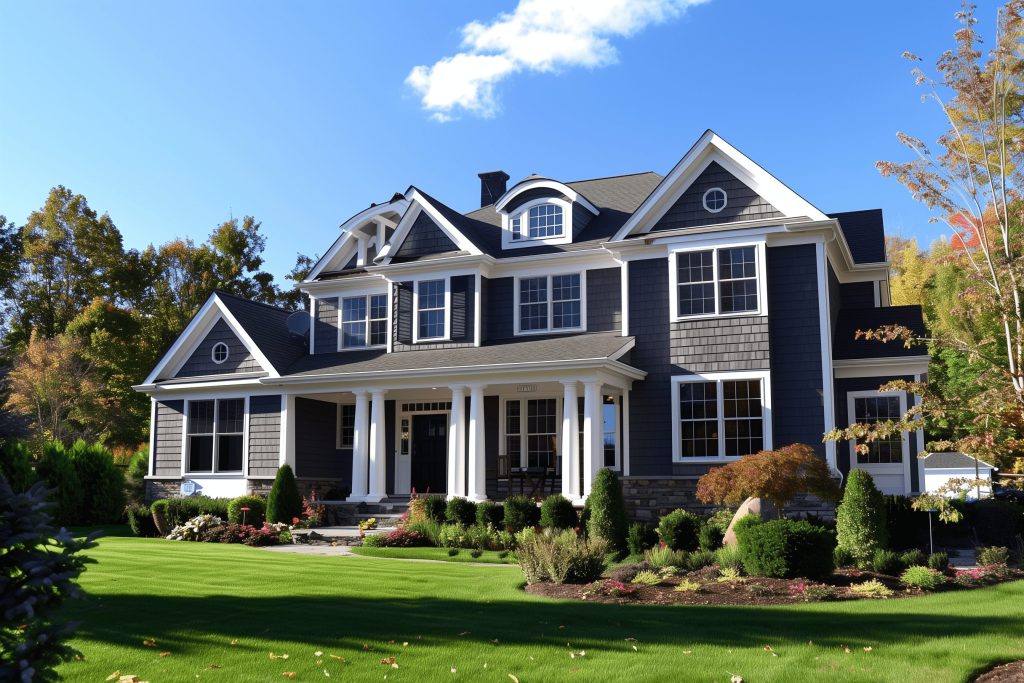When deciding between renting and buying, consider your lifestyle preferences. Renting offers flexibility with short-term commitments and easy relocating, but lacks equity building. On the other hand, buying provides stability through equity building, financial security, and tax benefits. Financially, renting suits short-term budgets, while buying offers long-term investment potential. Property appreciation and rental income depend on market trends, impacting long-term plans. Your personal priorities and goals play an important role in this decision-making process, influencing your financial future. Evaluate how each option aligns with your lifestyle and financial objectives to make the best choice for your circumstances.
Key Takeaways
- Renting offers flexibility for short-term changes in circumstances and frequent relocation.
- Buying provides stability with long-term financial security, equity building, and stable mortgage payments.
- Renting allows for location flexibility but lacks equity building opportunities.
- Buying offers tax benefits, investment potential through property appreciation, and rental income.
- Personal preferences and priorities determine alignment with lifestyle and financial objectives when choosing between renting and buying.

Renting for Flexibility
When considering the option of renting for flexibility, it is essential to weigh the advantages and disadvantages of this housing choice carefully. Renting offers the benefit of a **short-term commitment**, providing the flexibility to **adapt to changing circumstances** without the long-term financial commitment of buying a home. This short-term commitment is particularly advantageous for individuals who may need to **relocate frequently** due to job requirements or personal preferences.
Moreover, renting allows for greater **location flexibility**. It enables individuals to reside in different neighborhoods or cities without being tied down to a specific property. This can be beneficial for those who value variety in their living arrangements or wish to explore different areas before committing to a long-term investment.
However, despite these advantages, renting also comes with its drawbacks. One of the primary disadvantages is the **lack of equity building**. Unlike homeowners, renters do not build equity in the property they reside in, potentially missing out on the **long-term financial benefits** of homeownership.
Buying for Stability
When considering buying a home for stability, you are investing in your financial security and future. Real estate is historically known for appreciating over time, making it a long-term investment with potential for growth. By owning a property, you are not only securing a place to live but also building equity and stability for your financial well-being.
Financial Security Benefits
By exploring homeownership, you are securing a stable financial future and building equity over time. Owning a home provides financial security benefits that extend beyond just having a place to live. It offers opportunities for growth in emergency savings and retirement planning. Let’s investigate the tangible benefits of financial security through homeownership.
| Financial Security Benefits of Homeownership | Description |
|---|---|
| Equity Building | Homeownership allows you to build equity over time, increasing your net worth. |
| Stable Mortgage Payments | Fixed-rate mortgages provide predictability, unlike rent increases in the rental market. |
| Tax Benefits | Deductions on mortgage interest and property taxes can lead to significant savings. |
| Asset Appreciation | Homes tend to appreciate in value over the long term, contributing to your wealth. |
| Collateral for Loans | Home equity can be leveraged for emergency funds or other financial needs. |
These financial security benefits highlight the advantages of investing in homeownership for a stable and secure financial future.

Long-Term Investment Potential
Considering the long-term investment potential, purchasing a home can offer stability and financial growth over time. When you buy a property, you have the opportunity for investment growth through property appreciation. Over the years, real estate historically tends to appreciate in value, providing a reliable long-term investment. This appreciation can greatly contribute to your overall wealth and financial security.
On the other hand, renting has its drawbacks regarding long-term investment potential. While renting provides flexibility, it does not offer the same level of financial growth that buying a home can provide. Rent payments do not contribute to property ownership or equity, meaning that renters miss out on the opportunity for property appreciation and the potential for long-term wealth accumulation.
Financial Considerations
Exploring the financial implications of renting versus buying can provide valuable insights into your long-term financial stability and growth potential. When considering renting, budgeting tips and saving strategies become important. Renting offers more flexibility regarding your monthly expenses since you don’t have to worry about unexpected maintenance costs or property taxes. However, rent prices can fluctuate with the market, potentially impacting your long-term budget. To mitigate this, consider negotiating longer-term rental agreements to lock in a stable rental rate.
On the other hand, buying a property involves more upfront costs but can lead to long-term financial benefits. Mortgage payments can provide a sense of stability as they typically remain fixed, allowing for better long-term budget planning. When buying, it’s important to carefully review the terms of your mortgage agreement and negotiate favorable terms where possible.
Both renting and buying have their financial advantages and drawbacks. Understanding your financial goals and priorities can help you make an informed decision that aligns with your long-term financial well-being. By implementing sound budgeting tips, exploring saving strategies, and being savvy in rental agreements or lease negotiations, you can set yourself up for financial success, whether you choose to rent or buy.
Lifestyle Flexibility
When considering lifestyle flexibility, rental lease terms play a significant role in your decision-making process. The length and conditions of a lease can impact your ability to adapt to changing circumstances or explore new opportunities. Conversely, homeownership decisions involve long-term commitments that may limit your flexibility in the short term but offer stability and potential equity in the future.
Rental Lease Terms
Rental lease terms play an important role in determining the level of lifestyle flexibility you can expect while living in a rented property. When engaging in lease negotiations and signing rental agreements, it is vital to understand the impact these terms can have on your daily life. Lease terms vary widely depending on the landlord, location, and type of rental property, influencing aspects such as rent increases, maintenance responsibilities, and the duration of the lease.
The flexibility afforded by rental lease terms can vary significantly. Shorter lease terms provide more flexibility but may come with the trade-off of potentially higher rents or more frequent relocations. On the other hand, longer lease terms offer stability but limit your ability to adapt to changing circumstances. Understanding your preferences and lifestyle needs is essential when considering different lease terms for a rental property. By carefully evaluating the lease terms during the decision-making process, you can align your living situation with your desired lifestyle goals.

Homeownership Decision Making
Homeownership decision-making hinges on the balance between lifestyle flexibility and long-term stability. When comparing rental advantages to home ownership pros, it’s important to take into account your priorities. Renting offers flexibility regarding mobility, as lease terms are typically shorter, allowing for easier relocation. Additionally, renters are not responsible for maintenance costs, providing financial flexibility. On the other hand, home ownership provides stability through equity building and the potential for long-term appreciation. Owning a home allows for customization and investment in property improvements, enhancing lifestyle and potentially increasing resale value. However, it also ties you down to a specific location and requires financial commitment for maintenance and unexpected repairs. Ultimately, the decision-making process should involve a thorough assessment of your lifestyle goals, financial capabilities, and long-term plans to strike the right balance between flexibility and stability in your housing choice.
Property Investment Potential
How does the property investment potential differ between renting and buying real estate? When considering property investment potential, two key factors come into play: property appreciation and rental income. Property appreciation refers to the increase in the value of real estate over time, influenced by market trends and demand. Buying real estate usually offers the potential for property appreciation, allowing homeowners to build equity as the property’s value increases. On the other hand, renting does not provide the same opportunity for property appreciation as renters do not own the property.
Rental income is another vital aspect of property investment potential. Individuals who buy real estate and choose to rent it out can generate rental income, which contributes to their overall investment returns. This rental income can help offset mortgage payments, property maintenance costs, and even provide a source of passive income. Renting, however, does not offer the same opportunity to generate rental income as renters pay a set amount each month without the potential to earn from tenants.
Understanding market trends is essential when evaluating property investment potential. By monitoring market trends, investors can make informed decisions that maximize their investment returns. Buying real estate allows individuals to benefit from market trends by capitalizing on property appreciation and rental income opportunities. Renting, while offering flexibility, does not provide the same level of potential investment returns as buying real estate.

Impact on Long-Term Plans
Considering the impact on long-term plans, it is essential to assess how renting or buying real estate can shape your financial future and overall stability. When it comes to career changes, renting offers more flexibility. If you anticipate making a career shift for job opportunities or embarking on a new industry, renting allows you to adapt quickly without the constraints of selling a property. On the other hand, buying a home can provide stability during career adjustments as you have a fixed housing cost, potentially saving you from fluctuations in rental prices.
In terms of travel opportunities, renting may be more suitable if you value the freedom to explore different locations without being tied down to a specific property. Renting enables you to allocate more funds towards travel experiences rather than mortgage payments or property upkeep. Conversely, owning a home could limit your ability to travel extensively due to financial obligations and the need to maintain your property.
When planning for the long term, consider how your housing choice aligns with your career aspirations and travel goals. Renting offers flexibility for those anticipating frequent career changes or desiring travel opportunities, while buying provides stability and a sense of permanence that may suit individuals looking for long-term roots and financial security.
Personal Preferences and Priorities
Your personal preferences and priorities play a significant role in determining whether renting or buying real estate aligns best with your lifestyle and financial objectives. When considering housing preferences, think about whether you value the flexibility of renting or the stability of owning a home. Renting provides the freedom to easily relocate for career opportunities or lifestyle changes without the commitment of homeownership. On the other hand, buying a home offers the stability of having a permanent residence and the potential for building equity over time.
Your lifestyle choices are also vital in the decision between renting and buying. If you prefer the convenience of having maintenance tasks handled by a landlord and enjoy the amenities of a rental property, renting may be more suitable for you. However, if you desire the autonomy to personalize your living space, make renovations, and invest in property upgrades, buying a home could better align with your lifestyle preferences.
Personal priorities such as financial goals, long-term plans, and overall stability should be carefully considered when weighing the advantages and disadvantages of renting versus buying. Evaluating your housing preferences and lifestyle choices against your personal priorities will help you make an informed decision that aligns with your values and objectives.

Frequently Asked Questions
How Do Changing Rental Laws Affect Flexibility in Different Regions?
Considering regional rental laws can shape your lifestyle impacts in a substantial way. Stay informed to navigate changes effectively. Understand the nuances of each region to make informed decisions that align with your goals and preferences.
Can Buying a Home Lead to Unexpected Stability Challenges?
Buying a home can indeed present unexpected stability challenges. While homeownership offers many benefits, it’s important to anticipate and prepare for potential pitfalls such as maintenance costs, market fluctuations, and financial strains.
Are There Hidden Costs in Property Investment Potential?
When investing in properties, consider potential hidden costs like maintenance expenses that eat into property appreciation. Properly managing these costs is essential for maximizing returns and ensuring long-term financial stability in your investments.
How Does Lifestyle Flexibility Impact Mental Well-Being?
In the intricate dance of life, balancing work and personal relationships is crucial. Your mental well-being thrives on the flexibility to nurture both aspects. Adapting schedules and priorities with ease empowers harmony and stability.
What Are the Long-Term Effects of Property Market Fluctuations?
Consider the long-term effects of property market fluctuations. Investment risks increase with volatile market trends. Analyze data to make informed decisions. Understand the implications of market shifts on your financial stability and future planning.
Conclusion
In the battle between flexibility and stability, renting offers the freedom to adapt to changing circumstances while buying provides a secure foundation for the future. Consider your financial situation, lifestyle preferences, and long-term goals when making this decision. Remember, life is like a box of chocolates – you never know what you’re going to get. Choose wisely and enjoy the journey ahead.



